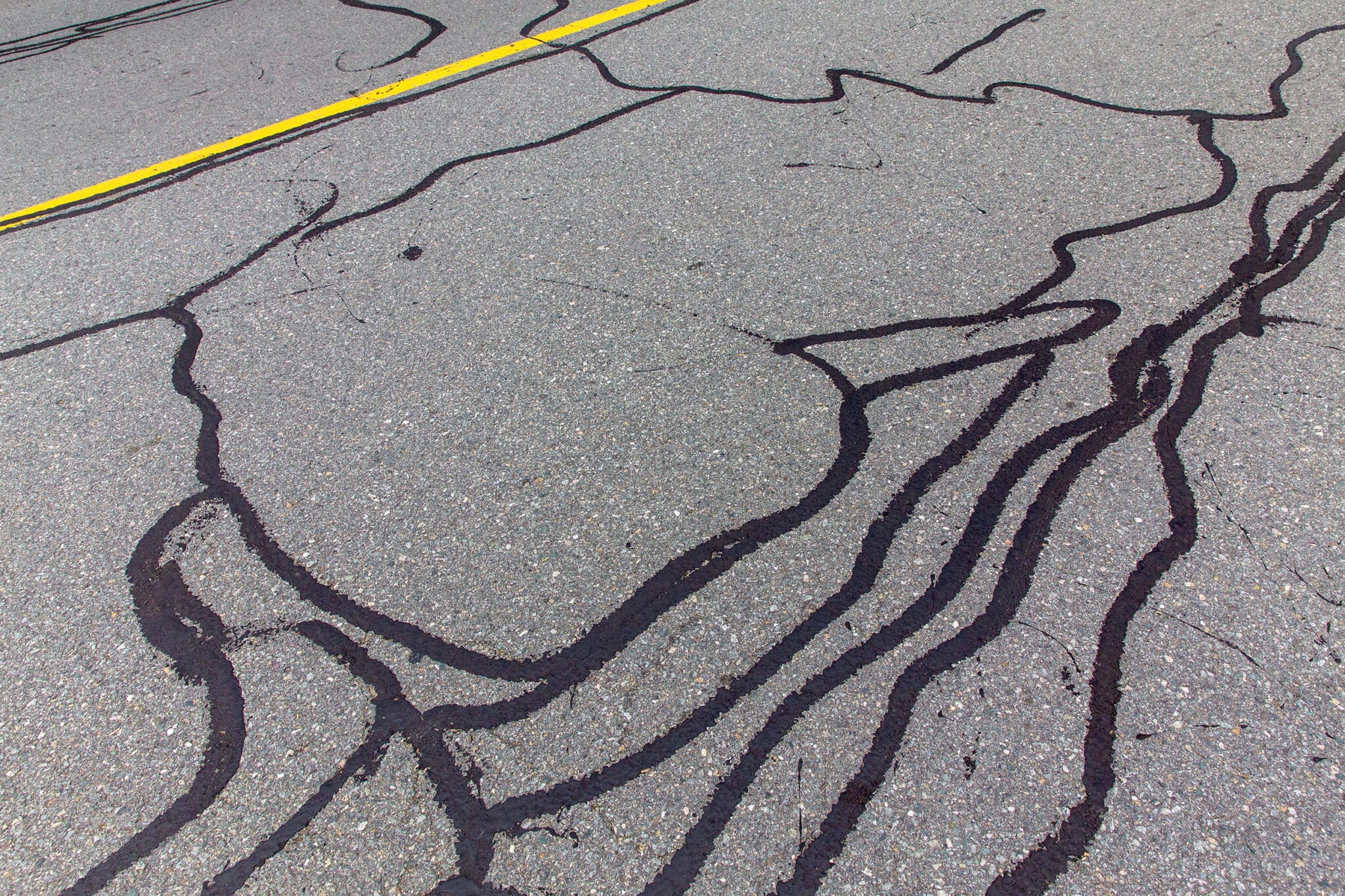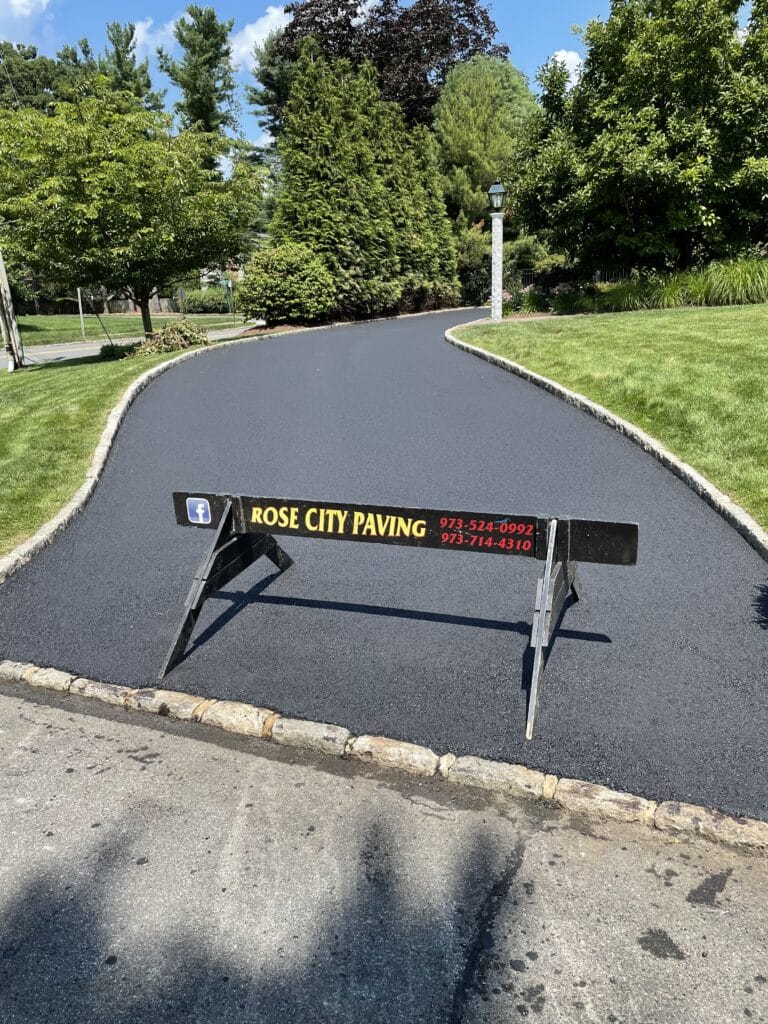Hot Mix Asphalt: A Sustainable Solution for Pavement
Warm Mix Asphalt (HMA) has emerged as a leading sustainable choice for pavement services, providing a myriad of innovative modern technologies and ecological benefits. As the demand for environment-friendly construction practices grows, exploring the subtleties of HMA's sustainability can supply beneficial insights into the future of pavement solutions.
Environmental Benefits of Warm Mix Asphalt

Furthermore, Warm Mix Asphalt assists to reduce urban warm island results. Its dark shade soaks up sunlight, reducing the amount of heat showed back right into the environment contrasted to lighter-colored pavements. This can reduce ambient temperature levels in metropolitan areas, reducing the need for a/c and inevitably decreasing energy intake.
Additionally, Hot Mix Asphalt adds to boosted stormwater monitoring. Its porous nature allows water to charge and infiltrate the sidewalk groundwater products, minimizing overflow and the risk of flooding. These ecological advantages make Warm Mix Asphalt a lasting selection for paving roads and freeways.
Energy Performance in HMA Manufacturing
Is energy performance an essential factor in the production of Hot Mix Asphalt (HMA)? Absolutely. Energy plays a significant role in the manufacturing of HMA, impacting both cost and environmental sustainability. One vital aspect of energy performance in HMA manufacturing is the use of cozy mix asphalt (WMA) modern technologies (hot mix asphalt). WMA permits the mixing and placement of asphalt at reduced temperature levels compared to conventional warm mix asphalt, leading to minimized energy consumption during manufacturing. This procedure not just decreases fuel use however also lowers greenhouse gas emissions, making it an extra eco pleasant choice.
Furthermore, innovations in plant innovations have actually brought about even more energy-efficient HMA production procedures. Modern plants are designed with attributes like recycled asphalt pavement (RAP) processing capabilities, reliable heater systems, and boosted insulation, all adding to power cost savings. By enhancing energy use in HMA production, the industry can minimize its carbon footprint while keeping premium sidewalk materials. Power performance is, as a result, an important factor to consider in making certain the sustainability of Warm Mix Asphalt production.
Recyclability of Warm Mix Asphalt
The recyclability of Warm Mix Asphalt (HMA) is a crucial element of its sustainability and long-term environmental influence. HMA is one of one of the official source most recycled products in the United States, with over 100 million lots of recovered asphalt pavement (RAP) being reused each year in brand-new sidewalk building. Recycling HMA offers a number of ecological advantages, such as minimizing the need for virgin materials, decreasing power intake throughout manufacturing, and lowering the quantity of waste sent to land fills.
The process of reusing HMA involves grating the existing sidewalk, squashing it right into smaller sized items, and blending it with new aggregate and asphalt binder to produce a recycled mix. In general, the recyclability of HMA plays a considerable role in promoting lasting techniques within the sidewalk industry.

Long-Term Performance of HMA
Asphalt sidewalks show toughness and resilience over an extensive period, showing this article the lasting efficiency of Hot Mix Asphalt (HMA) The long life of HMA can be credited to its ability to endure rush hour loads, rough weather, and the results of aging. Researches have actually revealed that properly designed and effectively built HMA sidewalks can last for twenty years or more with regular maintenance. The secret to taking full advantage of the long-lasting efficiency of HMA hinges on making use of top notch products, following ideal methods in building, and implementing reliable maintenance approaches. Proper drain, routine examinations, and prompt repair work are crucial for preserving the structural honesty of HMA sidewalks gradually. Furthermore, innovations in HMA modern technology, such as the usage of polymer-modified binders and cozy mix asphalt, have additionally improved the longevity and durability of HMA pavements. By prioritizing quality building and upkeep practices, HMA proceeds to show itself as a affordable and sustainable remedy for lasting pavement infrastructure.

HMA: Durability and Sustainability
Showing both resilience and sustainability, Hot Mix Asphalt (HMA) has actually ended up being a foundation in the building and construction of lasting pavement facilities - hot mix asphalt. HMA's sturdiness stems from its capacity to endure hefty tons, harsh weather, and high web traffic volumes, making it a dependable selection for roads, freeways, and flight terminal paths. The structure of HMA, which generally consists of accumulations, binder, and filler, plays a vital function in boosting its longevity and resistance to deterioration
In addition, HMA's sustainability hinges on its recyclability and energy-efficient manufacturing process. The capability to recycle redeemed asphalt sidewalk (RAP) in new HMA blends lowers the demand for virgin materials and lessens the environmental influence of sidewalk construction and upkeep. Additionally, the power performance of producing HMA hinges on its lower mixing temperature levels compared to other sidewalk materials, leading to reduced energy intake and greenhouse gas discharges.
Conclusion
To conclude, warm mix asphalt (HMA) supplies a sustainable service for pavement with its eco-friendly characteristics. HMA's recyclability, power effectiveness in production, and long-lasting longevity make it an environment-friendly selection for roadway construction. By saving natural resources, reducing waste, and lowering greenhouse gas exhausts, HMA plays a critical role in promoting sustainability in facilities advancement. Its capacity to mitigate urban heat island results even more emphasizes its blog importance in developing ecologically aware and durable pavement systems.
HMA is one of the most recycled products in the United States, with over 100 million heaps of reclaimed asphalt pavement (RAP) being reused annually in brand-new sidewalk building.The process of reusing HMA entails crushing the existing sidewalk, squashing it into smaller items, and blending it with new accumulation and asphalt binder to create a recycled mix.Asphalt pavements show sturdiness and strength over an extensive duration, mirroring the lasting performance of Hot Mix Asphalt (HMA) In addition, advancements in HMA technology, such as the usage of polymer-modified binders and warm mix asphalt, have even more boosted the sturdiness and durability of HMA sidewalks. The capability to reuse reclaimed asphalt sidewalk (RAP) in new HMA combinations lowers the demand for virgin materials and minimizes the ecological impact of pavement building and construction and maintenance.